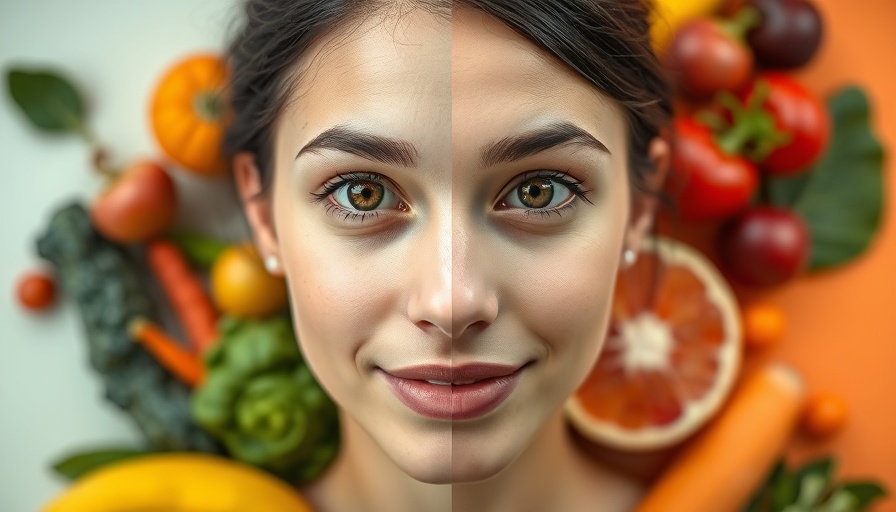
Recognizing the Signs of Vitamin Deficiency
When it comes to our health, our bodies often send us subtle signals that something might not be quite right. If you're feeling sluggish, noticing hair loss, or even suffering from skin issues, these could be signs of vitamin deficiencies. In this article, we'll explore the ten warning signs your body might be trying to communicate regarding the vitamins it needs, and what you can eat to nourish your body back to health.
In '10 Signs Your Body Is Deficient in Vitamins – And What to Eat!', the discussion dives into the crucial signs of vitamin deficiencies, prompting deeper analysis on how to effectively address these issues through diet.
1. Persistent Fatigue: Is It Vitamin D?
Feeling tired despite getting enough sleep? If so, your body may be lacking vitamin D. This crucial vitamin is integral for maintaining energy levels and optimizing your sleep-wake cycle. Natural sunlight should ideally supply your vitamin D needs, but if you live in a less sunny area or spend too much time indoors, incorporating vitamin D-rich foods like fatty fish, egg yolks, and fortified options into your diet can help you feel revitalized.
2. Cracks in the Mouth and Bleeding Gums: The Need for B Vitamins
Cracked corners of the mouth and bleeding gums are not only bothersome but may signal a deficiency in B2 (riboflavin) or vitamin C, essential for dental health. To heal these signs, load up on riboflavin-rich foods like eggs, dairy products, and green leafy vegetables, and boost your vitamin C by eating more citrus fruits, strawberries, and bell peppers.
3. Thinning Hair: Check Your Biotin Levels
If you’re experiencing increased hair shedding, your biotin intake may be too low. Biotin is critical for hair growth and strength. Including foods like eggs, nuts, and whole grains can significantly improve your hair health.
4. Muscle Cramps: Magnesium Deficiency?
Suffering from muscle cramps, especially in the legs? A magnesium deficiency might be the culprit. This mineral is essential for muscle relaxation. Consider incorporating magnesium-rich foods into your meals, such as avocados, dark chocolate, and spinach, which can help alleviate cramps and support overall muscle function.
5. Unexplained Mood Swings: Is Your Diet to Blame?
Mood swings and irritability may often be linked to nutritional deficiencies. Vitamins D and omega-3 fatty acids are vital for maintaining emotional balance. Foods like salmon, walnuts, and flaxseeds can help stabilize your mood and improve your overall mental health.
6. Skin Issues: Zinc and Vitamin A Matter
If you’re struggling with persistent acne or dull skin, it may be time to assess your diet for zinc and vitamin A. Embracing foods such as oysters, pumpkin seeds, sweet potatoes, and carrots will not only enhance your skin health but could also help combat acne.
7. A Weakened Immune System: Boost with Vitamins
If you’re catching every cold that passes by, consider enhancing your vitamin C, D, and zinc intake! These nutrients play a significant role in bolstering immune defenses. A balanced diet rich in fruits, vegetables, and lean proteins can be the key to a robust immune system.
8. Weak Nails and Dry Hair: More Than Just Aesthetic Issues
Dry, brittle hair and weak nails could indicate deficiencies in both iron and biotin. To overcome these, eat iron-rich foods like spinach, lentils, and red meat, coupled with your biotin sources to help restore your hair and nail strength.
9. Mental Fatigue: The B12 Connection
Mental fatigue can leave you feeling foggy. A deficiency in vitamin B12 may contribute to this sensation. Ensure your brain functions optimally by consuming enough foods such as meat and fortified cereals that are rich in this vital nutrient.
10. The Importance of Listening to Your Body
Ultimately, the key takeaway is to pay attention to your body's signals. It speaks to you in many ways, and adjusting your diet to incorporate nutrient-rich foods can lead to remarkable improvements in your health. Remember that every small change counts!
As we conclude this insight into vitamin deficiencies, it's clear that what we consume has the power to transform our well-being. By nourishing our bodies with the right foods, we can enhance our health significantly. So next time you notice any signs discussed, be proactive and make the dietary changes that your body is craving!
For more practical tips on healthy living, join our community and explore how you can cultivate a nourishing lifestyle for you and your family.
 Add Row
Add Row  Add
Add 




Write A Comment